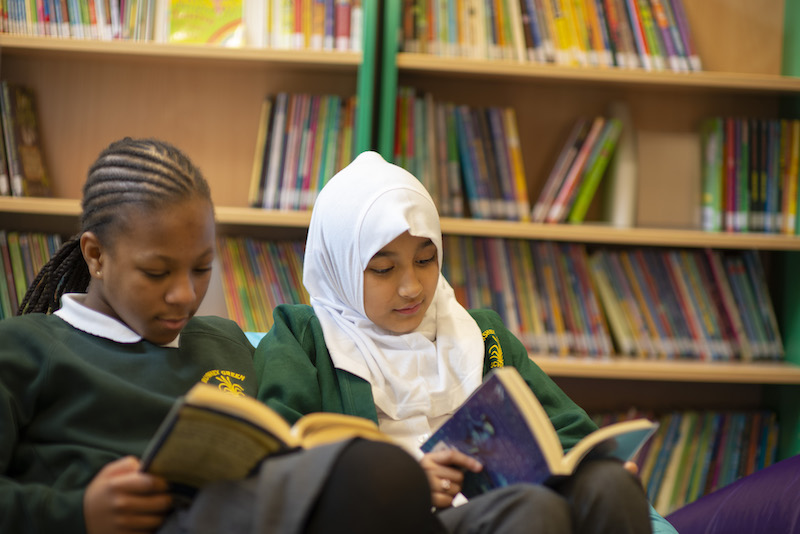English

English has a pre-eminent place in education and society and a high-quality education teaches pupils to speak, read and write fluently so that they can communicate ideas and emotions to others.
Reading
At Rushey Green we aim to develop a love for reading and equip children with the skills to access texts and learn about the wider world. Children are initially taught Phonics and currently in Years R to 3, children have daily opportunities (Daily Supported Reading) to read and discuss engaging stories at their learning level.
To support the development of reading skills in a smooth transition from Daily Supported Reading (DSR), we follow Destination Reader across KS2 from Year 3 up to Year 6.
Destination Reader focuses on these key principles which we embed within the school:
- Enable quality experience
- Promote enjoyment
- Increase reading mileage
- Build firm foundations
- Develop thinking and understanding
- Make talk central
Destination Reader allows children to access high quality books that are engaging and exciting. As talk is made central, partner reading is continued and children are given ample opportunities to discuss books with their partners. To encourage respective communication, children are taught to use sentence starters to support them in actively listening, participating, discussing and explaining their ideas.
The programme covers seven key skills that are identified within the national curriculum to support the reading and understanding of a wide range of texts. These are:
- Predicting
- Making connections
- Asking questions
- Evaluating
- Inferring
- Summarising
- Clarifying
While children read their book with their partner, they are encouraged to pause and have discussions in a respectful way using a variety of the key skills, some of which will be specifically taught.
Parents and Reading
We recommend that parents regularly listen to their children read and read to their children using a variety of ever changing books. This enhances the enjoyment of reading and parent workshops share information on how we teach reading.
Writing
Writing is taught through Talk for Writing which is an approach that develops speaking, listening, vocabulary and grammar as well as children’s creative writing skills. The method focuses on children learning quality texts off by heart so that rich language and structure is embedded and built upon in every year group. A range of fiction and non-fiction genres are taught throughout the year and writing toolkits are established so that children are aware of the features of different text types.
Speaking and Listening
There is a huge emphasis on speaking and listening from an early age, encouraging children to ‘play’ with language and to be able to articulate their thoughts. We begin early, with the use of rhymes and songs to develop understanding. As they progress through the school, children are encouraged to discuss their learning, develop their confidence and increase their enjoyment of language through performance, debate and public speaking.
Useful documents |
By the end of each key stage, pupils are expected to know, apply and understand the matters, skills and processes specified in the relevant programme of study. For more information related to progression, please follow these links.
.png)